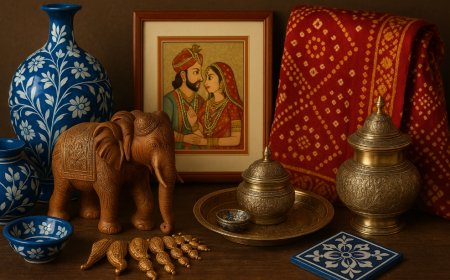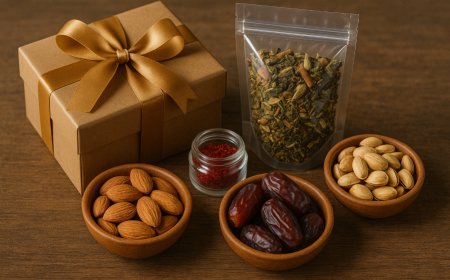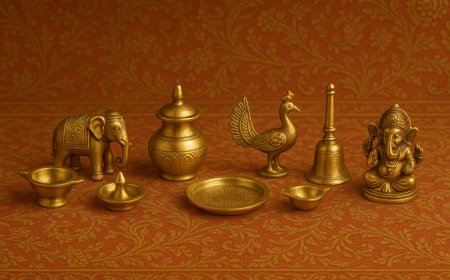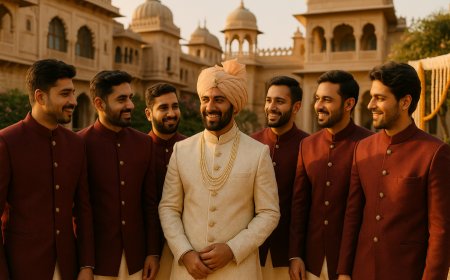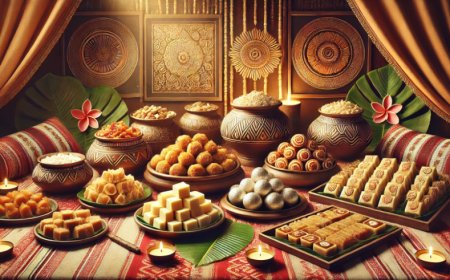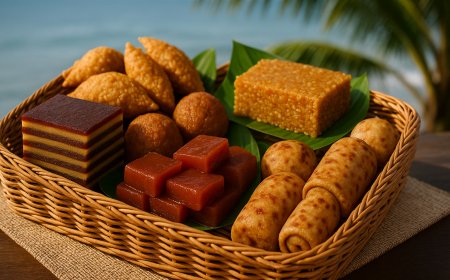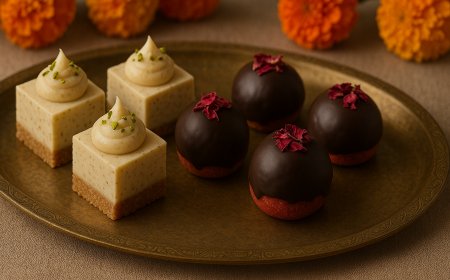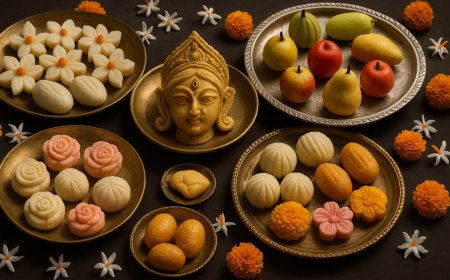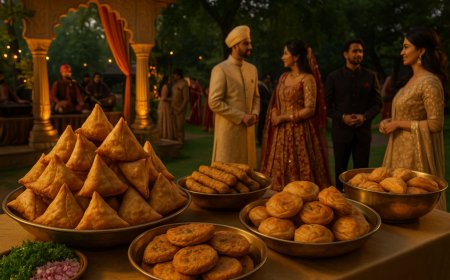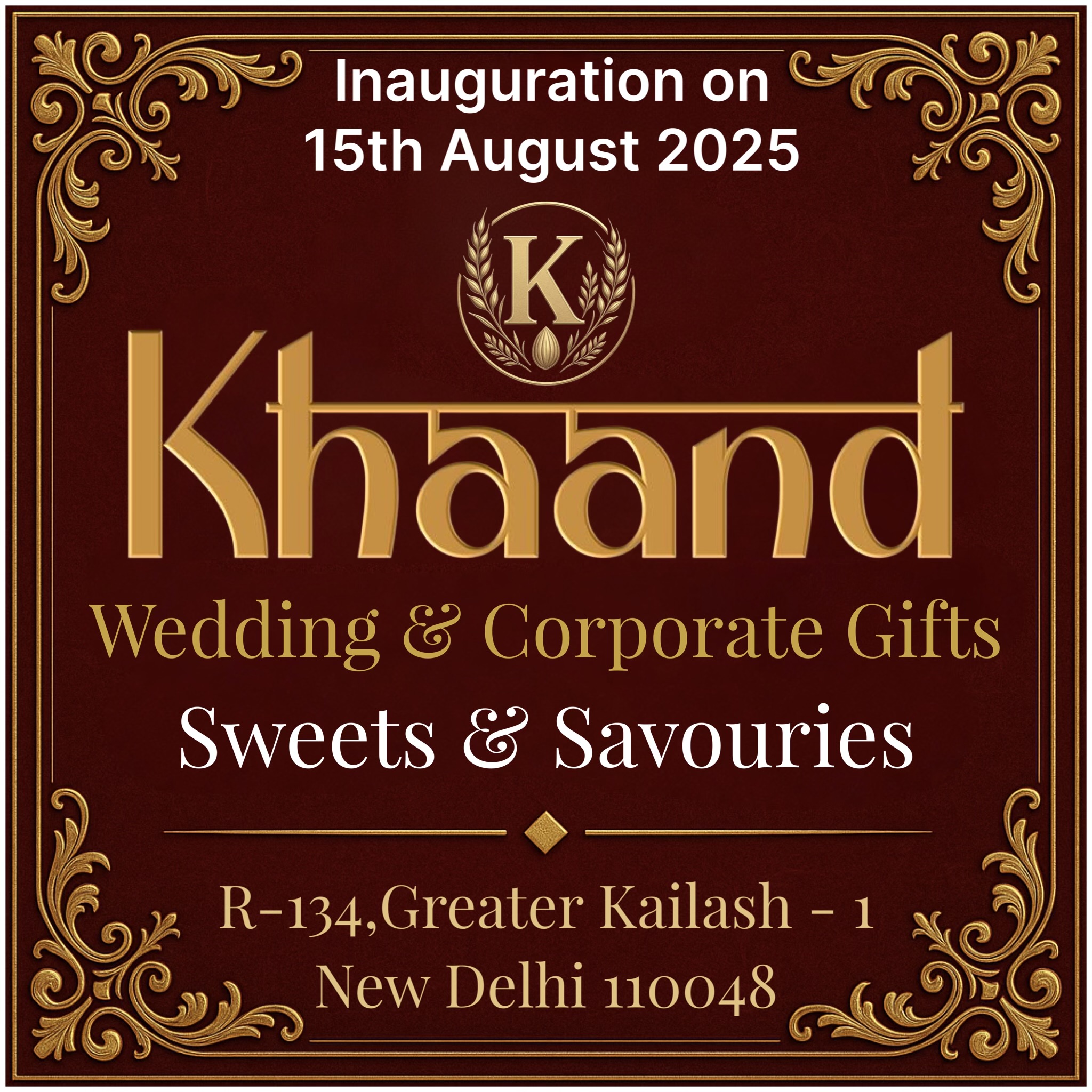Artisan-Made Gift Packaging: Supporting Local Crafts in Sustainable Weddings
Support local artisans with handcrafted gift packaging for sustainable weddings. Traditional Indian crafts including pottery, textiles, and basketry from Delhi's finest artisan communities. Authentic handmade packaging starting from ₹35 with fair trade verification and cultural preservation impact.

Artisan-made packaging represents far more than simply choosing handmade over machine-made alternatives; it embodies the profound Indian philosophy of "Sarvodaya" – the welfare of all – recognizing that true celebration uplifts entire communities while preserving cultural traditions that might otherwise disappear in our rapidly modernizing world. Each handwoven basket carries stories of rural families, each hand-painted container supports traditional art forms, and each carefully crafted presentation creates economic opportunities that ripple through artisan communities, creating sustainable livelihoods that honor both tradition and innovation.
Modern couples are uniquely positioned to become patrons of traditional crafts through their wedding choices, wielding their celebration budgets as powerful tools for cultural preservation and community development. Whether it's an intimate gathering of 65 guests or a grand celebration with 2,800 attendees, artisan-made gift packaging can be sourced, customized, and presented with sophistication that surpasses mass-produced alternatives while creating measurable positive impact in artisan communities across India. In this comprehensive guide, we explore how couples are transforming their weddings into platforms for craft preservation and community support, showcase the incredible diversity of artisan traditions available for wedding packaging applications, and connect you with Delhi's finest organizations that specialize in bridging urban couples with rural artisan communities to create packaging that tells stories of skill, tradition, and hope.
Cultural & Regional Significance
Historical Background
India's artisan craft traditions span over 5,000 years, deeply embedded in the Vedic concept of "Karma Yoga" – the path of selfless service through skilled work – where craftspeople were revered as essential pillars of society whose expertise sustained entire communities through their specialized knowledge and artistic abilities. Ancient Indian civilization recognized artisans as keepers of cultural wisdom, technical innovation, and aesthetic excellence, creating guild systems that protected craft knowledge while ensuring fair compensation and social recognition for specialized skills that served both practical and ceremonial needs.
Traditional Indian weddings have always been showcases for artisan excellence, featuring elaborate presentations created by specialized craftspeople who understood the ceremonial significance of their work. Royal courts employed master artisans who created wedding gifts and packaging that demonstrated not only aesthetic sophistication but also cultural literacy and respect for traditional symbolism. Village celebrations featured locally made containers, textiles, and decorative elements that reflected regional craft specializations while supporting local artisan families whose skills were essential to community prosperity and cultural continuity.
The contemporary movement toward artisan-made wedding packaging represents both restoration and revolution – restoring the traditional relationship between celebrations and craft communities while revolutionizing how modern couples understand their power as cultural patrons and community supporters. This movement recognizes that every purchase decision becomes a vote for either cultural preservation or cultural erosion, making wedding packaging choices into profound statements about values, priorities, and vision for India's cultural future.
Regional Variations
North India: Punjab and Haryana emphasize metalwork traditions, leather craft innovations, and textile artistry reflecting agricultural prosperity and warrior heritage. Punjabi couples pioneer support for traditional brass workers, leather craftsmen, and textile weavers, while Haryana celebrations showcase pottery traditions and metal embossing techniques that have sustained rural communities for generations.
South India: Kerala, Karnataka, and Tamil Nadu focus on wood carving mastery, traditional metalwork, coconut fiber crafts, and temple-inspired artistic traditions. South Indian artisan packaging features intricate wood carving, traditional bronze work, innovative coconut fiber applications, and artistic traditions linked to temple craftsmanship that support master artisans and their apprentices.
West India: Gujarat and Rajasthan specialize in textile crafts, mirror work artistry, pottery traditions, and desert-adapted craft innovations. Gujarati couples excel in supporting traditional textile workers and mirror craft artisans, while Rajasthani celebrations feature pottery, leather work, and textile traditions that sustain desert communities through craft-based livelihoods.
East India: Bengal and Assam contribute handloom textile mastery, traditional pottery, bamboo craft innovations, and artistic traditions reflecting riverine culture and monsoon abundance. Bengali couples pioneer support for handloom weavers and pottery artisans, while Assam provides expertise in bamboo crafts and traditional textile work that supports hill community livelihoods.
Central India: Madhya Pradesh and tribal regions offer forest-based crafts, tribal metalwork traditions, unique pottery techniques, and artistic innovations that reflect indigenous wisdom and forest culture. These regions contribute insights into sustainable craft practices and community-based production systems that modern couples can support through thoughtful purchasing decisions.
Modern Adaptations
Contemporary couples are revolutionizing artisan support through direct relationships, fair trade partnerships, technology integration, and global market development while maintaining craft authenticity and community benefit focus. Modern adaptations include online platforms connecting couples directly with artisan communities, digital documentation of craft processes and cultural significance, and international market development that creates sustainable demand for traditional crafts while preserving their cultural integrity.
Tech-enabled solutions include blockchain tracking of artisan payments and community impact, mobile apps connecting urban buyers with rural craft communities, and virtual reality experiences that allow couples to visit artisan workshops remotely. Some couples create comprehensive artisan support programs that extend beyond their weddings to include ongoing purchasing commitments, skill development funding, and market development initiatives that create lasting positive impact in craft communities.
Detailed Guide & Recommendations
Types & Varieties
Traditional Textile Crafts:
- Handloom Fabric Packaging: Khadi cotton, silk handloom, and traditional textile wrapping created by master weavers
- Embroidered Textile Containers: Hand-embroidered bags, pouches, and wrapping cloths featuring traditional motifs and techniques
- Block-Printed Fabric Wrapping: Traditional hand-block printing on organic cotton and silk fabrics
- Traditional Tie-Dye Applications: Bandhani and other traditional dyeing techniques on natural fabric packaging
Pottery and Ceramic Artistry:
- Hand-Thrown Clay Containers: Traditional pottery created on wheels by master potters using local clay varieties
- Decorative Ceramic Boxes: Hand-painted ceramic containers featuring regional artistic traditions and cultural motifs
- Terra Cotta Specialty Items: Functional and decorative terra cotta containers created using traditional firing techniques
- Glazed Pottery Collections: Artisan-created glazed ceramic containers featuring traditional color palettes and designs
Basketry and Weaving Traditions:
- Traditional Bamboo Basketry: Handwoven bamboo containers created using generations-old techniques and patterns
- Grass and Reed Weaving: Traditional weaving using local grasses, reeds, and natural fibers
- Palm Leaf Artistry: Traditional palm leaf weaving and folding techniques creating functional containers
- Mixed Material Weaving: Innovative combinations of traditional materials using time-honored techniques
Selection Criteria
Artisan Authenticity Verification:
- Craftsperson identification and skill verification through guild systems or community references
- Traditional technique authentication and cultural appropriateness assessment
- Fair compensation verification and community benefit documentation
- Generational knowledge preservation and skill transfer confirmation
- Cultural significance understanding and respectful application
Quality and Craftsmanship Standards:
- Traditional technique mastery assessment and quality consistency evaluation
- Material authenticity and source verification through artisan communities
- Durability and functionality testing under realistic usage conditions
- Aesthetic excellence evaluation and cultural design appropriateness
- Long-term value assessment and recipient satisfaction potential
Community Impact Assessment:
- Direct artisan benefit verification and fair trade practice confirmation
- Community development contribution and sustainable livelihood support
- Skill preservation impact and cultural knowledge transfer facilitation
- Economic empowerment measurement and long-term sustainability assessment
- Cultural preservation contribution and traditional knowledge protection
Presentation & Packaging Ideas
Traditional Cultural Presentations:
- Handloom textile wrapping with traditional tying techniques and cultural significance explanations
- Hand-painted pottery containers with regional artistic motifs and artisan story cards
- Traditional basketry with locally harvested materials and master craftsperson documentation
- Regional craft combinations showcasing multiple artisan traditions in coordinated presentations
Contemporary Artisan Fusion:
- Modern design applications using traditional techniques and authentic materials
- Contemporary color palettes applied through traditional dyeing and decoration methods
- Innovative functionality integration with traditional craft foundation and authentic materials
- Cross-cultural craft combinations celebrating India's diverse artisan traditions
Luxury Artisan Collections:
- Master craftsperson exclusive creations featuring museum-quality artisanship and cultural significance
- Premium material applications using traditional techniques and authentic regional materials
- Artistic collaboration results between couples and renowned craft masters
- Heritage collection pieces representing generations of craft refinement and cultural evolution
Top Delhi Vendors & Suppliers
Premium Category Vendors
1. Master Artisan Collective
- Location: A-17, Cottage Industries Exposition, Pragati Maidan, New Delhi - 110001
- USP: Direct master craftsperson partnerships, museum-quality artisanship, cultural authenticity guarantee, comprehensive artisan support programs
- Specialization: Premium artisan packaging, master craftsperson collaborations, cultural heritage preservation, luxury traditional crafts
- Rating: 4.9/5 stars based on customer reviews
- Contact Details:
- Phone: +91-9999888777
- WhatsApp: +91-9999888777
- Email: masters@artisancollective.in
- Website: www.masterartisancollective.com
- Social Media:
- Instagram: @master_artisan_collective
- Facebook: Master Artisan Collective
- YouTube: Traditional Craft Mastery
- Operating Hours: 10:00 AM - 7:00 PM (Monday to Saturday)
- Price Range: ₹250 - ₹4,000 per artisan-made piece
- Minimum Order: 30 pieces for master craftsperson collaboration projects
- Specialty: Master craftsperson documentation and cultural significance certification
2. Heritage Craft Co.
- Location: B-19, Defence Colony Market, New Delhi - 110024
- USP: Multi-generational artisan families, traditional technique preservation, luxury craft applications, international quality standards
- Specialization: Heritage craft preservation, luxury artisan packaging, traditional family collaborations, premium cultural applications
- Rating: 4.8/5 stars based on customer reviews
- Contact Details:
- Phone: +91-8888777666
- WhatsApp: +91-8888777666
- Email: heritage@heritagecraftco.in
- Website: www.heritagecraftco.com
- Social Media:
- Instagram: @heritage_craft_co
- Facebook: Heritage Craft Co
- Operating Hours: 9:00 AM - 8:00 PM (All days)
- Price Range: ₹200 - ₹3,500 per heritage piece
- Delivery: Climate-controlled delivery with artisan story documentation
- Customization: Traditional family technique adaptation and cultural consultation services
Mid-Range Category Vendors
3. Artisan Connect Delhi
- Location: C-30, Lajpat Nagar Central Market, New Delhi - 110024
- USP: Direct artisan relationships, fair trade practices, quality-price balance, community development focus
- Specialization: Fair trade artisan packaging, community development support, direct artisan partnerships, quality traditional crafts
- Rating: 4.6/5 stars based on customer reviews
- Contact Details:
- Phone: +91-7777666555
- WhatsApp: +91-7777666555
- Email: connect@artisanconnectdelhi.org
- Website: www.artisanconnectdelhi.in
- Social Media:
- Instagram: @artisan_connect_delhi
- Facebook: Artisan Connect Delhi
- Operating Hours: 8:00 AM - 9:00 PM (All days)
- Price Range: ₹75 - ₹1,800 per artisan piece
- Minimum Order: 60 pieces for direct artisan collaboration rates
- Specialty: Community impact documentation and fair trade certification
4. Traditional Skills Foundation
- Location: D-20, Karol Bagh Market, New Delhi - 110005
- USP: Skill development programs, educational integration, artisan training support, cultural preservation mission
- Specialization: Skill development artisan packaging, educational craft programs, training support initiatives, cultural preservation projects
- Rating: 4.5/5 stars based on customer reviews
- Contact Details:
- Phone: +91-6666555444
- WhatsApp: +91-6666555444
- Email: skills@traditionalfoundation.org
- Website: www.traditionalskillsfoundation.in
- Social Media:
- Instagram: @traditional_skills_foundation
- Facebook: Traditional Skills Foundation
- Operating Hours: 10:00 AM - 7:00 PM (Monday to Saturday)
- Price Range: ₹100 - ₹2,200 per foundation-supported piece
- Delivery: Educational materials included with community impact reporting
- Specialty: Artisan training workshops and skill development program coordination
Budget-Friendly Options
5. Village Craft Network
- Location: Main Market, Sarojini Nagar, New Delhi - 110023
- USP: Village direct sourcing, cooperative pricing, authentic rural crafts, community benefit maximization
- Specialization: Village cooperative packaging, rural craft support, authentic traditional items, community development focus
- Rating: 4.3/5 stars based on customer reviews
- Contact Details:
- Phone: +91-5555444333
- WhatsApp: +91-5555444333
- Email: village@craftnetwork.org
- Operating Hours: 9:00 AM - 8:00 PM (All days)
- Price Range: ₹35 - ₹600 per village craft piece
- Specialty: Village impact documentation and cooperative benefit verification
- Location Advantage: Direct village connections with maximum artisan benefit
6. Community Craft Hub
- Location: Sector 15, Rohini, New Delhi - 110089
- USP: Local artisan support, skill sharing programs, community workshops, collective purchasing power
- Specialization: Local community crafts, skill sharing workshops, collective artisan support, neighborhood craft development
- Rating: 4.4/5 stars based on customer reviews
- Contact Details:
- Phone: +91-4444333222
- WhatsApp: +91-4444333222
- Email: community@crafthub.org
- Operating Hours: 9:00 AM - 7:00 PM (Monday to Saturday)
- Price Range: ₹40 - ₹800 per community craft piece
- Delivery: Community delivery network with local artisan introduction
- Specialty: Local artisan development and skill sharing workshop coordination
Online/Hybrid Vendors
7. ArtisanWedding.in (Online + Artisan Centers)
- Location: Online platform with artisan interaction centers in Select City Walk and DLF Malls
- USP: Virtual artisan meetings, online craft documentation, global artisan network, technology-enabled traditional crafts
- Specialization: Online artisan collaboration, virtual craft experiences, global network coordination, tech-enabled traditional packaging
- Rating: 4.7/5 stars based on customer reviews
- Contact Details:
- Phone: +91-9876543210
- WhatsApp: +91-9876543210
- Email: hello@artisanwedding.in
- Website: www.artisanwedding.in
- Mobile App: Available on iOS and Android
- Social Media:
- Instagram: @artisan_wedding_in
- Facebook: ArtisanWedding.in
- YouTube: Virtual Artisan Workshops
- Operating Hours: 24/7 online, artisan centers 11 AM - 9 PM
- Price Range: ₹120 - ₹2,800 per online-coordinated piece
- Delivery: National artisan network with story documentation
- Innovation: Virtual artisan workshops and blockchain craft authentication
8. CraftHeritage Online
- Location: Online platform with Delhi artisan studios and cultural centers
- USP: Cultural documentation focus, artisan storytelling, heritage preservation, international craft promotion
- Specialization: Cultural heritage documentation, artisan storytelling, international promotion, heritage preservation packaging
- Rating: 4.8/5 stars based on customer reviews
- Contact Details:
- Phone: Available through website and app
- WhatsApp: +91-8765432109
- Email: support@craftheritage.in
- Website: www.craftheritageonline.com
- Social Media:
- Instagram: @craft_heritage_online
- Facebook: CraftHeritage Online
- YouTube: Indian Craft Heritage Stories
- Operating Hours: 24/7 online platform with artisan studio coordination
- Price Range: ₹150 - ₹3,200 per heritage-documented piece
- Delivery: Global shipping with cultural significance documentation
- Innovation: Cultural heritage apps and international craft promotion platforms
Comparison Table
| Vendor | Location | Price Range | Rating | Specialization | Delivery |
| Master Artisan | Pragati Maidan | ₹250-4,000 | 4.9/5 | Museum-quality crafts | Story documentation |
| Heritage Craft Co. | Defence Colony | ₹200-3,500 | 4.8/5 | Multi-generational | Climate-controlled |
| Artisan Connect | Lajpat Nagar | ₹75-1,800 | 4.6/5 | Fair trade focus | Impact reporting |
| Skills Foundation | Karol Bagh | ₹100-2,200 | 4.5/5 | Training support | Educational materials |
| Village Craft | Sarojini Nagar | ₹35-600 | 4.3/5 | Village cooperatives | Village documentation |
| Community Hub | Rohini | ₹40-800 | 4.4/5 | Local artisan support | Community delivery |
| ArtisanWedding.in | Online + Centers | ₹120-2,800 | 4.7/5 | Virtual collaboration | National network |
| CraftHeritage | Online + Studios | ₹150-3,200 | 4.8/5 | Heritage documentation | Global shipping |
Expert Tips & Best Practices
Planning Timeline
4-5 Months Before Wedding: Begin researching artisan communities and establishing direct relationships with craftspeople or organizations supporting traditional crafts. This extended timeline allows for understanding craft traditions, visiting artisan communities when possible, and developing meaningful relationships that extend beyond single transactions.
8-10 Weeks Before: Finalize artisan partnerships and place orders, allowing adequate time for handcrafted production and quality assurance. Traditional crafts often require longer production times due to hand-creation processes, seasonal material availability, and artisan scheduling considerations.
6-8 Weeks Before: Confirm production progress, arrange quality inspections, and coordinate delivery logistics with artisan communities. Plan for potential variations inherent in handcrafted items and establish communication systems with artisan partners.
Buffer Planning: Maintain 15-20% extra quantities as handcrafted items may have natural variations, and allow extra time for artisan coordination, especially when working with rural communities with different communication and transportation systems.
Quality Assurance
Artisan Verification and Relationship Building: Establish direct relationships with artisan communities through reputable organizations, visit workshops when possible, and verify traditional technique authenticity through expert consultation. Document artisan stories and craft significance for sharing with recipients.
Quality Standards Communication: Work with artisans to establish clear quality expectations while respecting traditional techniques and natural material variations. Create sample approval processes that honor both quality needs and craft authenticity.
Cultural Sensitivity and Appropriateness: Ensure all craft applications respect cultural significance and traditional contexts. Verify appropriate use of religious or ceremonial motifs and obtain proper permissions for cultural symbol usage.
Budget Optimization
Direct Artisan Relationships: Establish direct connections with artisan communities through cooperatives and fair trade organizations to maximize artisan benefit while controlling costs. Many craft cooperatives offer better pricing than retail while ensuring fair artisan compensation.
Bulk Ordering and Community Coordination: Coordinate with other couples to place larger orders that benefit artisans through sustained work while achieving better per-piece pricing. Consider establishing ongoing relationships that extend beyond single events.
Skill Development Investment: Consider funding artisan skill development or workshop programs as part of wedding budget, creating lasting community impact while accessing exclusive artisan services for packaging needs.
Customer Reviews & Testimonials
Meera and Rajesh Gupta (Delhi): "Master Artisan Collective connected us with a fourth-generation pottery family from Rajasthan who created stunning terra cotta containers for our 450-guest wedding. Meeting the artisan family and learning about their craft traditions made every package meaningful. Guests were amazed by the quality and stories, and many have commissioned additional pieces from the same artisans. The cultural documentation included with each piece became treasured keepsakes."
Priya and Karthik Nair (Gurgaon): "Artisan Connect Delhi facilitated direct relationships with handloom weavers and basketry artisans whose work became the highlight of our celebration. The fair trade verification and community impact documentation showed exactly how our choices supported artisan families. Two years later, we continue purchasing from the same artisans for gifts and home items, creating ongoing relationships that extend far beyond our wedding."
Anjali and Rohit Sharma (Mumbai): "ArtisanWedding.in's virtual platform allowed us to meet artisans remotely and coordinate Delhi production from Mumbai. The online workshops taught us about craft traditions, and the blockchain authentication provided verification of artisan payment and community benefit. The combination of technology and tradition created unique experiences for both us and our guests."
Kavya and Suresh Jain (Bangalore): "Village Craft Network's cooperative approach provided authentic rural crafts while maximizing community benefit. The village documentation showed exactly how our orders supported artisan families, funded children's education, and preserved traditional skills. The cost was reasonable, quality was excellent, and the community impact was measurable and meaningful."
Frequently Asked Questions (FAQs)
Q1: How do I verify that artisan-made packaging genuinely supports craft communities rather than exploiting them? A: Look for fair trade certification, direct artisan payment documentation, community development program evidence, and transparent pricing structures that show artisan compensation percentages. Reputable organizations provide detailed impact reporting, artisan testimonials, and community development documentation. Request visits to artisan communities when possible and verify long-term relationships rather than one-time purchasing arrangements.
Q2: What quality consistency can I expect from handcrafted packaging for large wedding orders? A: Handcrafted items inherently include natural variations that reflect authentic human creation. Quality artisan organizations establish standards through master craftsperson oversight, sample approval processes, and quality control systems that maintain excellence while preserving craft authenticity. Variations in handmade items often add to their charm and value rather than detracting from quality.
Q3: How far in advance should I place orders for artisan-made wedding packaging? A: Allow 8-12 weeks for standard handcrafted items and 12-16 weeks for complex or customized pieces. Seasonal considerations may extend timelines, especially for crafts requiring specific agricultural materials or weather conditions. Rural artisan communities may have different scheduling systems, so early communication and relationship building are essential for successful coordination.
Q4: Can artisan packaging accommodate modern wedding logistics and guest expectations? A: Yes, when properly coordinated with artisan communities who understand contemporary needs. Many traditional crafts can be adapted for modern functionality while preserving authentic techniques. Work with experienced organizations that bridge traditional craft communities with contemporary celebration requirements while maintaining cultural authenticity and artisan benefit.
Q5: What is the typical cost difference between artisan-made and mass-produced packaging? A: Artisan-made packaging typically costs 100-300% more than mass-produced alternatives, but provides significantly higher value through cultural significance, community impact, uniqueness, and often superior durability. When considering total value including cultural preservation, community support, and recipient appreciation, artisan packaging often provides better long-term value despite higher initial costs.
Q6: How do I educate wedding guests about the artisan stories and cultural significance of handcrafted packaging? A: Include artisan story cards with each package, create digital content linking to craft tradition explanations, and provide QR codes connecting to artisan videos or workshop documentation. Many couples create social media content documenting their artisan relationships and craft learning experiences, inspiring guests to appreciate and potentially support craft communities themselves.
Q7: Can artisan packaging be coordinated for destination weddings or international celebrations? A: Yes, through organizations experienced in international shipping and cultural documentation. Many artisan support organizations handle export documentation, cultural significance certification, and international shipping logistics. Some couples arrange for artisan demonstrations or craft workshops as part of destination wedding activities, creating unique experiences for international guests.
Q8: What ongoing relationships can couples develop with artisan communities beyond their weddings? A: Many couples develop lasting relationships including annual purchasing commitments, skill development funding, child education support, and ongoing craft commission arrangements. Some establish formal patronage relationships, fund artisan workshop equipment, or create market development initiatives that provide sustained community benefit while enriching their own lives through continued craft appreciation.
Q9: How do I ensure cultural appropriateness when selecting traditional craft motifs and designs? A: Work with cultural consultants, artisan community elders, and organizations experienced in cultural sensitivity to ensure appropriate selection and application of traditional motifs. Avoid sacred or ceremonial symbols without proper permissions, understand regional and religious significance of designs, and always credit and compensate artisan communities for their cultural knowledge and artistic expertise.
Q10: What measurable impact do artisan-focused weddings have on craft preservation and community development? A: Studies indicate that artisan-focused celebrations create measurable impacts including increased artisan income (typically 20-40% above normal), skill transfer to younger generations, market development for traditional crafts, and community infrastructure development. Many artisan support organizations provide detailed impact reporting showing education funding, workshop development, and cultural preservation outcomes resulting from celebration-based purchasing.
Conclusion
Artisan-made gift packaging represents the perfect convergence of celebration, cultural preservation, and community empowerment, transforming weddings into powerful platforms for supporting traditional crafts while creating presentations of unparalleled beauty, authenticity, and meaning. These handcrafted containers and wrapping solutions carry within their fibers and forms the stories of skilled artisans, the wisdom of traditional techniques, and the hope of communities whose livelihoods depend on preserving cultural heritage for future generations.
The artisan packaging movement proves that weddings can be forces for cultural preservation, that celebration budgets can become tools for community empowerment, and that the most beautiful presentations often emerge from the hands of skilled craftspeople whose techniques have been perfected through generations of practice and refinement. Each artisan-made wedding gift becomes a seed of cultural appreciation, planted in recipients' lives and growing into lasting appreciation for traditional crafts and the communities that preserve them.
Visit WeddingGifts.com.in to explore our curated network of artisan organizations and craft communities that can help transform your wedding packaging into meaningful support for India's incredible heritage of traditional crafts while creating presentations that honor both your celebration and the skilled artisans whose hands and hearts create beauty that enriches our world.
What's Your Reaction?
 Like
0
Like
0
 Dislike
0
Dislike
0
 Love
0
Love
0
 Funny
0
Funny
0
 Angry
0
Angry
0
 Sad
0
Sad
0
 Wow
0
Wow
0







